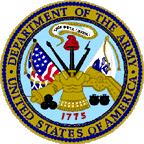
Patton now wanted to head to Germany believing the war could be brought to an end in 1944. He was therefore furious when General Omar Bradley ordered him to return to Brittany to mop up the remaining German troops. As soon as this job was completed he raced eastward across France with the rest of the 3rd Army. On 30th August 1944, Patton crossed the Meuse. Metz was well-defended and Patton's troops took heavy casualties and it was not taken until 13th December.
Adolf Hitler now ordered Field Marshal Gerd von Rundstedt to launch a counter-attack through the Ardennes. On 16th December 25 divisions of the German Army broke through American lines on a 60 mile front from Monschau and Echternach. They were finally halted and Patton's troops began to force the Germans back at what became known as the Battle of the Bulge.
Patton and his troops dashed across Europe after the battle of Normandy and exploited German weaknesses with great success, covering the 600 miles across France, Belgium, Luxembourg, Germany, Austria and Czechoslovakia. When the Third Army liberated the Buchenwald concentration camp, Patton slowed his pace. He instituted a policy, later adopted by other commanders, of making local German civilians tour the camps. By the time WWII was over, the Third Army had liberated or conquered 81,522 square miles of territory.
In October 1945, Patton assumed command of the Fifteenth Army in American-occupied Germany. On December 9, he suffered injuries as the result of an automobile accident. He died 12 days later, on December 21, 1945 and is buried among the soldiers who died in the Battle of the Bulge in Hamm, Luxembourg.
Remembered for his fierce determination and ability to lead soldiers, Patton is now considered one of the greatest military figures in history. The 1970 film, "Patton," starring George C. Scott in the title role, provoked renewed interest in Patton. The movie won seven Academy Awards, including Best Actor and Best Picture, and immortalized General George Smith Patton, Jr. as one of the world's most intriguing military men.

